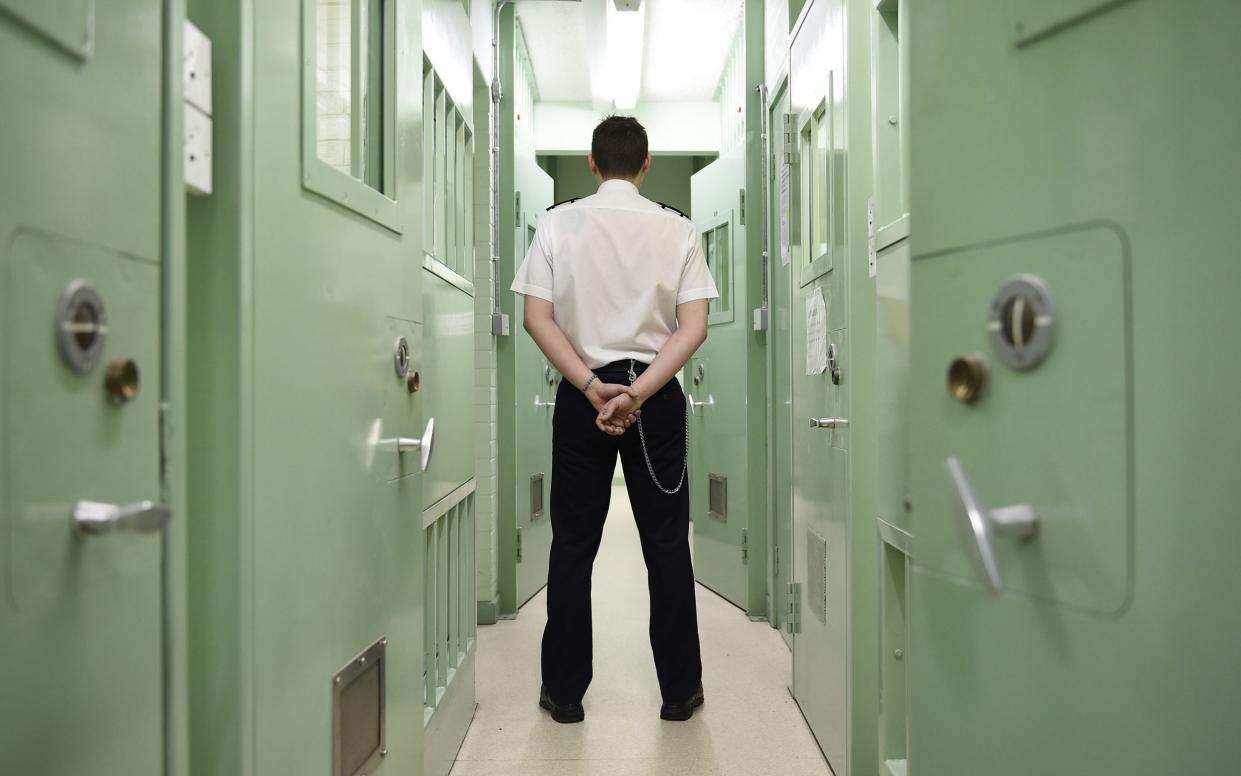Police told to make fewer arrests because prisons are getting full

Police chiefs have been told to make fewer arrests because prisons are running out of spaces to take suspects, it emerged last night.
Chief constables have been advised to consider pausing “non-priority arrests”, and suspending operations that could trigger “large numbers of arrests” because of the overcrowding crisis in prisons in England and Wales.
Just 1,000 spaces are currently available in prisons despite the Ministry of Justice (MoJ) approving the early release of hundreds of offenders to try to alleviate the shortage of spaces.
It comes just a week after the MoJ was forced to order delays in bail hearings by magistrates to avoid increasing the number of criminal suspects being remanded into custody.
The advice to chief constables has been revealed in a memo drawn up by the National Police Chiefs’ Council (NPCC).
It states: “Consideration is to be given to pausing non-priority arrests and any planned operations where large numbers of arrests may take place to ease the pressure within the criminal justice system.
“Notwithstanding public protection remains a priority and a considered threat, harm and risk assessment is to be completed when considering any pause in police operations.”
Non priority arrests are understood to include investigations that were yet to be carried out into a named suspect identified via CCTV or forensic evidence from a burglary. It excludes large-scale protests and public events that required a police presence.
A separate, internal letter from the NPCC to all 43 chief constables in England and Wales has warned that the government’s emergency measures are having an “unsustainable operational impact on policing”.
Hundreds of police cells have currently been commissioned by the MoJ to hold defendants before they are brought before magistrates because of the shortage of prison spaces for people to be held on remand.
The NPCC warned that the emergency package of measures introduced by the government “risks public safety”. The crisis may also restrict police officers’ ability to respond to urgent calls or investigate crime, the letter said.
They also urged police chiefs to record daily incidents to highlight the risks that the crisis is having on frontline policing so they could warn ministers against any further stopgap measures that affect their core duties.
One of Britain’s top judges has warned courts may have to be closed because of prisons running out of space to take convicted criminals.
In an internal statement to judges, magistrates and court staff, Lord Edis, the senior presiding judge, said that emergency measures introduced by the Ministry of Justice (MoJ) could lead to temporary “closure” of court buildings.
The emergency measures, known as Operation Early Dawn, have led to court bail hearings for defendants being delayed because of the shortage of prison places. It means that suspects are having to be held in police cells until prison places become available.
In his statement, Lord Edis said Operation Early Dawn aimed to maintain the “effective management of prisoner transfers between courts and custody.”
“This involves daily operational assessments by HM Prison and Probation Service (HMPPS) on which prisoners can be transferred from police cells and taken to courts to ensure there is a safe and secure location if remanded in custody,” he said.
“HM Court and Tribunal Service (HMCTS) will ensure that there is no risk of defendants / prisoners being left in court holding cells overnight. In extreme circumstances, application of Operation Early Dawn could lead to a pause in operations or the temporary ‘closure’ of a court building.”
The Ministry of Justice said it expected police cells to start freeing up from Thursday when a third emergency measure takes effect that will allow some prisoners to be released up to 70 days early. The department said this should enable it to stand down Operation Early Dawn and resume bail hearings as normal by the end of the week.
But shadow justice secretary Shabana Mahmood said: “It beggars belief that police are being told to sit on their hands and ignore crime because the Conservatives have mismanaged the criminal justice system so badly.
“Rishi Sunak’s rap sheet now reads: the rushed early release of domestic abusers onto our streets, deliberate delays to trials, and victims waiting years for justice. The public will be absolutely dumbfounded. This cannot go on.
“Labour is the party of law and order. We will build the new prisons needed and make Britain’s streets safe.”
A Government spokesman said: “Public safety will always be our first priority. That is why we have backed our police with the officers and resources they need to keep our streets safe and are introducing new laws to lock up the most dangerous offenders for longer while delivering the biggest prison expansion programme in 100 years.
“We continue to see pressure on our jails following the impact of the pandemic and barristers’ strike and have initiated a previously used operational measure to securely transfer prisoners between courts and custody.”

